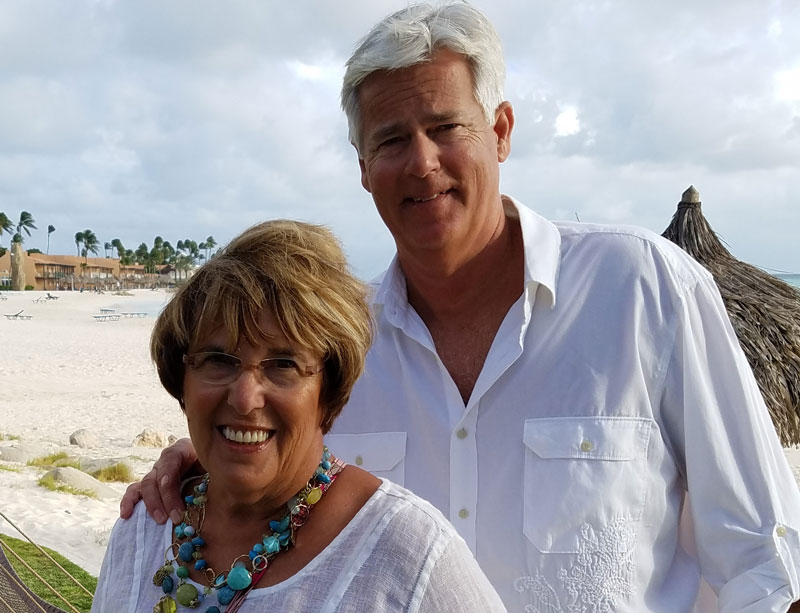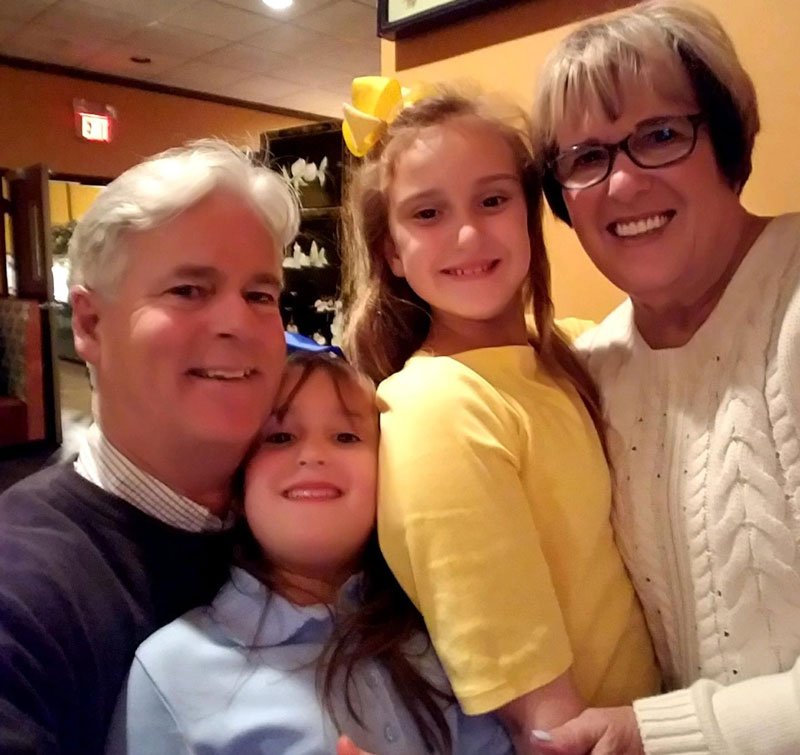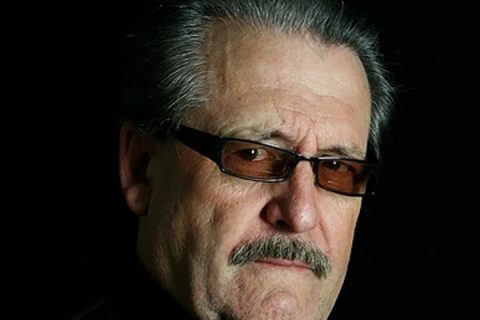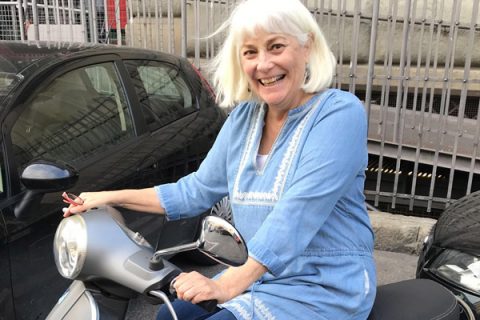Mesothelioma Survivor Part of Sugarbaker Legacy

Fact Checked | Written by: Tim Povtak | Last Update: 04/04/2025 | 6 Min Read
Tom Roland remembers vividly his last checkup with mesothelioma treatment pioneer Dr. David Sugarbaker back in March, almost two years after his aggressive surgery.
Sugarbaker left him feeling more confident than ever, refilling Roland with hope to fuel his future fight with an unrelenting cancer.
“He told me to just go out and enjoy life, that he had hit a home run with my surgery, that I was going to be around a long time. And to let him worry about the medical issues,” Roland told The Mesothelioma Center at Asbestos.com. “He had a confidence about him, and you just felt it.”
Sugarbaker, at the time, was quietly struggling with his own health issues, but he never told his patients. He died five months later, leaving a huge void in the mesothelioma community, but leaving an enduring legacy.
“He told me, ‘You’ll be dancing at my retirement party.’ But I never imagined, that someone who did such great things for mankind, helped so many people, could be vulnerable,” Roland said. “What a shock.”
Roland Believes in His Future
Roland, 63, is now part of that legacy — a mesothelioma survivor who believes in his future.
And it’s all thanks to Sugarbaker.
Since his last checkup with him, Roland and his wife, Joanne, have adopted a new puppy that he expects to chase for many years.
“He’s like a piranha out of water, just chews on everything now,” he said.
Roland also bought a new snow blower that’s he’s itching to use this winter on his 300-foot-long driveway.
He spent the summer tending to the six-acre piece of property where he and Joanne live. He cuts the grass, rakes the leaves, chops the wood. He even erected a new fence on the property.
“I still take pride in doing my own landscaping here. I feel lucky to still be doing it, but it’s a whole new deal for me,” he said. “What used take an hour, now takes two or three hours. I move a little slower. But that’s fine. I’m retired.”

Learn about your diagnosis, top doctors and how to pay for treatment.
Get Your Free GuideHonored in Retirement
Roland spent 30 years as the Charles County (Maryland) chief of parks and grounds, overseeing an expansion during his tenure that went from 631 acres to more than 4,000 acres over 32 parks.
Last year, the county officially christened the Port Tobacco River Park and Tom Roland Natural Resource Area in his honor.
It was an emotional moment.
He retired shortly after his original diagnosis in late 2015, a revelation that stunned him.
Joanne first noticed his problem, an otherwise active, healthy man suddenly looking short of breath after doing a local television presentation at work.
He never worked with asbestos materials or products containing asbestos, the primary cause of the disease. But his father did for many years, regularly bringing it home on his clothes, where he may have been exposed.
After X-rays, doctors discovered fluid on his lungs, sending him to a specialist in Baltimore, who did more testing and delivered the startling news.
“For my wife and I, the diagnosis just rocked our world, really knocked us off-kilter,” he said. “Freaked us out. I couldn’t even think for a couple days. We didn’t know anything about mesothelioma, except for the TV ads.”
Second Opinion Changed His Course
Roland began chemotherapy treatments at a highly-regarded, in-state cancer center.
He was scheduled to undergo an extrapleural pneumonectomy there, which would have removed one lung, the lining around it and parts of his diaphragm.
Just a few days before the surgery was scheduled, he and Joanne asked for a second opinion. They had read and heard about Sugarbaker and the mesothelioma program he created in Houston at the Lung Institute at Baylor College of Medicine.
It was bigger and better than what he had done in Boston, where he created the most prestigious mesothelioma program in the world.
After all of Roland’s records were reviewed, Sugarbaker suggested the pleurectomy and decortication procedure instead — a longer, more precise surgery that spared his lung.
The procedure included hyperthermic intrathoraic chemotherapy to kill any microscopic tumor cells left behind.
“Talking to him, he gave me hope that no one else did. We were looking for a lifeline, but we weren’t getting that from anyone else,” he said. “He was talking about a future that no one else was. That was important to me.”

Gain access to top mesothelioma doctors and get help scheduling appointments.
Connect NowRecovery from Surgery Was Difficult
After surgery, Roland spent three weeks in Houston recovering.
He returns to Baylor every four months now for checkups, believing the distance he travels from home is worth the expense and the effort.
“Dr. Sugarbaker didn’t pull any punches. The surgery is daunting. It’s brutal. But having confidence in him made the recovery easier,” he said. “I’m sure he told all his patients his mantra, that ‘when hope is part of the equation, anything is possible.’ It may sound like just a line on a website, but it wasn’t with him. It was real. He believed it. And when you heard him talk, you believed it, too.”
At Sugarbaker’s request, Roland has spoken with a few newly diagnosed mesothelioma patients, letting them know that today there is more hope than ever.

Tom Roland has two young granddaughters he wants to see grow up. He credits Dr. David Sugarbaker for giving him that chance.
Watching the Grandkids Grow up
Physically, Roland feels good. Although his many years of playing softball are over, he still goes to the gym and lifts weights a few days each week.
He bikes regularly, but the 30-mile trips he once did have been cut to 10 to 15 miles. The long jogs have become shorter, brisk walks.
“I’m fully aware of the reality of this disease — and I have limitations — but staying busy really helps me mentally,” he said. “I can go days without thinking about the disease, but every time you feel a little pain, or when your clinic day approaches, that can be tough.”
His last two checkups have been with other doctors at Baylor, and his plan is to continue flying to Houston for checkups. He still strongly believes in what Sugarbaker started there and what he left behind.
“I’ve been lucky. My disease was caught early. We found Dr. Sugarbaker, which was a blessing and incredibly important,” he said. “I have two young granddaughters, first and third grade. I want to see them grow up to be young ladies.”





